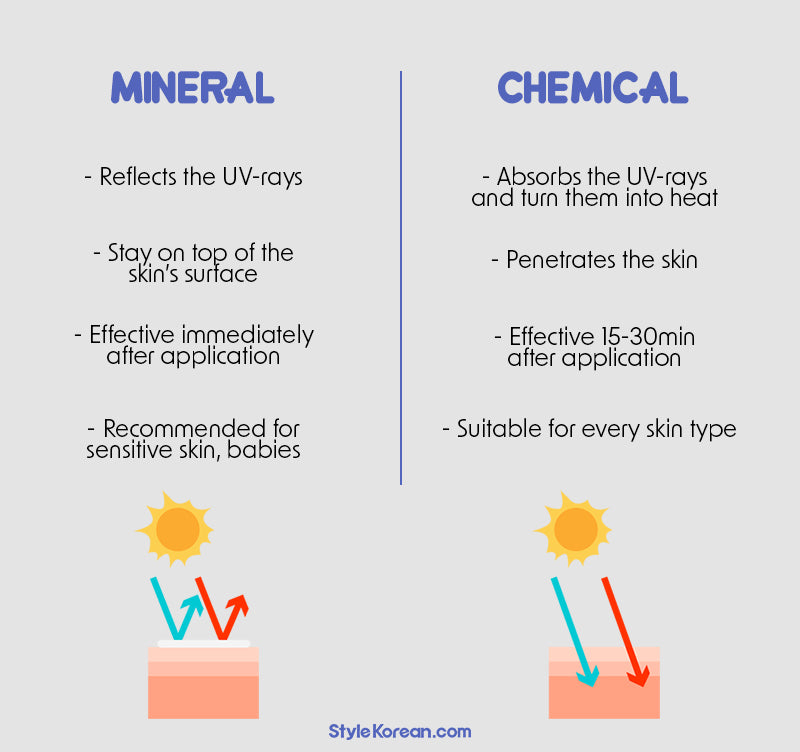
What is the difference between Physical sunscreen Vs. Chemical suncreen? Which is better choice.
It is common knowledge that sunscreen helps prevent sunburn, lowers the risk of melanoma, and reduces sun-related skin aging.
Chemical and Mineral sunscreen filters
The FDA has approved 16 active UV filter ingredients for sunscreens, including mineral-based zinc oxide and titanium dioxide, which reflect UV radiation, while organic filters absorb it. It's important to note that mineral sunscreen does not break down when it reflects radiation. In contrast, organic chemicals have the potential to break down into smaller, more hazardous materials when they absorb radiation.
It's crucial to know that chemical sunscreens can readily penetrate the skin. In contrast, a recent study has shown that the inorganic minerals from UV filters, such as zinc oxide and titanium dioxide, are not found in the bloodstream after sunscreen. This information can help you make more informed choices about the products you use on your skin.
One of the biggest concerns with mineral-based sunscreen is the use of micron or nano-sized mineral particles. Nano-based UV mineral filters are currently under investigation for potential inhalation if the sunscreen is applied as a spray. Therefore, it's crucial to be aware and avoid using nano-based mineral UV filters in spray applications to ensure your health and safety.
Zinc oxide stands out as the only UV filter approved in the USA for sunscreens that protects all three wavelength regions. This unique property of zinc oxide makes it a highly effective and reliable choice for sun protection.
References 1. Grum T. Sunscreen regulations across the globe: What industry needs to know. 2019. Available from: https://www.cosmeticsdesigneurope.com/Article/2019/08/19/Sunscreenregulations-in-the-world-from-EuropeanUnion-USA-Canada-to-China#
